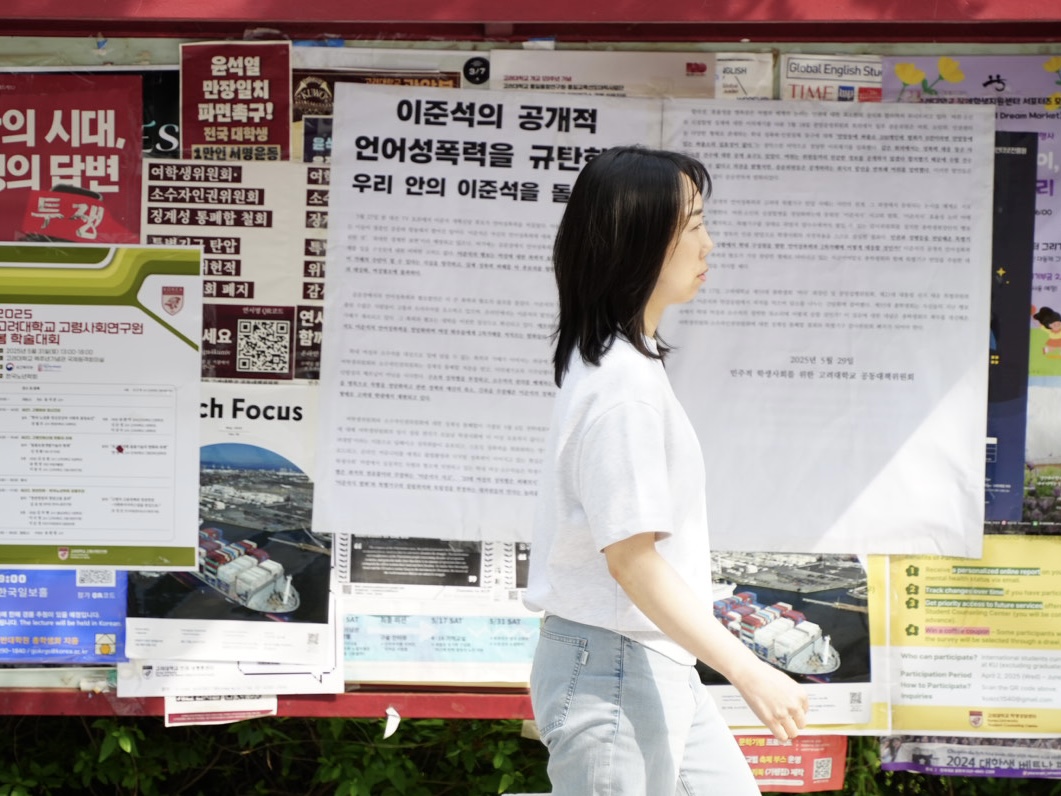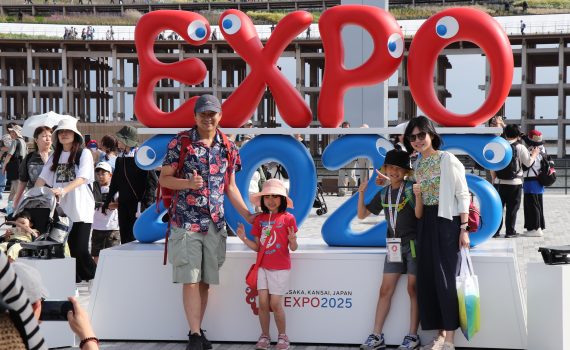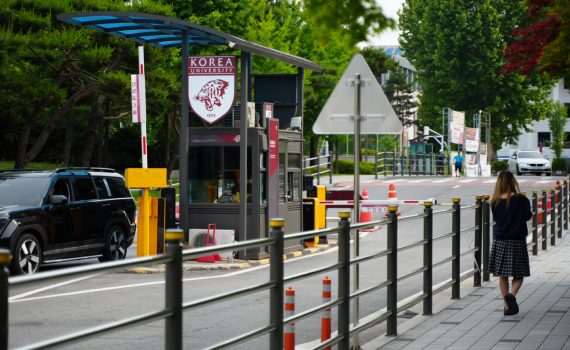Young voters in Seoul consider the economy one of the major concerns heading into the South Korean 21st presidential election, which takes place on June 3, as South Korea’s central bank cut the basic interest rate by 25 basis points days before to counter the current economic downturn.
“The current (economic) situation is really bad, everything is becoming more and more expensive,” said Victoria Kim, a psychology student at Yonsei University, who gave up travelling abroad but visited cities inside South Korea instead because of the depreciation of the South Korean won.
South Korea's won weakened sharply after ex-president Yoon Suk Yeol declared emergency martial law, causing a democratic crisis in the country on Dec. 3, 2024, and hit a record low in nearly 16 years after Trump’s declaration of a 25 percent tariff against Korea-manufactured goods in April.
While the South Korean benchmark stock index, KOSPI, moved higher and broke a 10-month record high at 2,720.64 on May 29, boosted by tech shares, which strengthened the won against the USD, this was mainly triggered by the US trade court’s blockade of Trump’s global tariffs.

For Kim, the economic uncertainty extends beyond travel decisions to her everyday expenses.
“I like to be a vegetarian and eat lots of veg and fruit at home, and with the recent price rises it’s a burden to buy and eat,” said Kim, working part-time in Seoul apart form college right now.
Being eager to enjoy cultural life, Kim must continue working to save money, which makes her feel frustrated and negatively impacts her mental well-being.
Jerry (assumed name), a student in the Korea University department of Humanities, sees social welfare for low-income groups as the key issue in his vote, and is looking for substantial and implementable funding policies to support the research and development among university programs, especially for science and technology departments.
“I will support a president who knows what’s going on in the technological and scientific aspects of the world,” said Jerry.

Park (assumed name), 26, a computer science postgraduate at Korea University who voted early a few days before, shares Jerry’s priorities. He also considers economic and tax as his primary factors and evaluates how well the presidential candidates understand the current state of technological development.
“The country needs someone who knows what’s going on in the aspect of AI and technology”, said Park, who plans to run a startup business after graduation.
Jaemin Han, a freshman at the Korea University business school, is concerned about the employment issue, as he has observed that primary manufacturing industries in Korea are experiencing a downturn, and classmates around him tend to chase jobs with higher incomes.
“With the downturn in the economy, I feel that there is pervasive depression and some defeatism in the community,” he said.
There are six candidates for the 2025 South Korean presidential election. Both the front-runner in the poll, democratic Lee Jae Myung, and conservative party leader Kim Moon Soo have listed economic growth as their top agenda, with Lee Junseok, the leader of the newly established party and second runner-up in the poll, appealing more to young voters. The other three candidates are Hwang Kyo-ahn, a former Prime Minister running as an independent, Han Duck-soo, another independent and former acting president, and Kwon Young-guk of the Justice Party.
《The Young Reporter》
The Young Reporter (TYR) started as a newspaper in 1969. Today, it is published across multiple media platforms and updated constantly to bring the latest news and analyses to its readers.

Gender-neutral toilets, Hello Kitty and Gundam highlights at the Osaka Expo

South Korea Presidential Election 2025: Students Embrace AI's Future Potential While Questioning Candidates' Preparedness for Tech Leadership




Comments